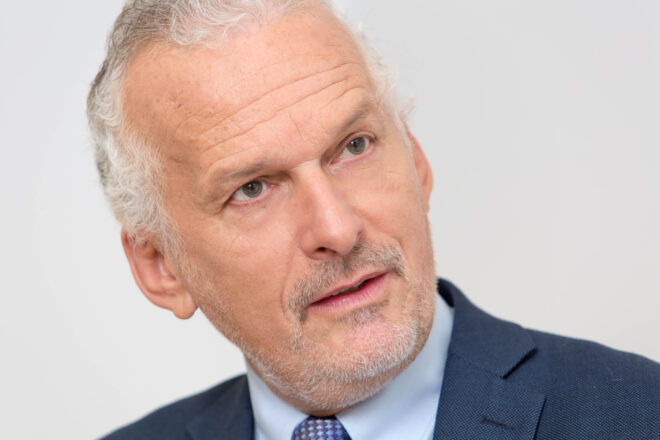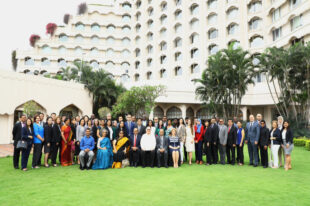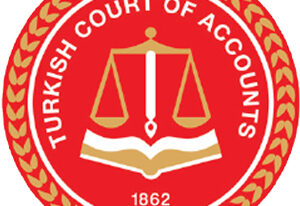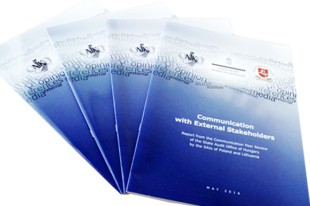Taking Actions Globally for a Sustainable Future

It is a great privilege and gives me deep pleasure to seize this opportunity at the end of my 12-year term as Secretary General of INTOSAI to reflect on the past decade’s milestones and to take an outlook on future opportunities and the challenges that lie ahead.
When I assumed office as Secretary General of INTOSAI, the organization was shaped by new visions and the spirit of renewal and innovation. My appointment to office coincided with the adoption of INTOSAI’s first Strategic Plan, which set out innovative forms of interaction and leadership. This milestone document, together with the second Strategic Plan, helped to raise the profile and status of INTOSAI by defining four essential goal areas and introducing the development and coordination of professional auditing standards, thus rendering INTOSAI into a professional standard setter and a model organization. As such, INTOSAI has not only advanced its operational structure but also extended its activities and interactions globally. This includes an intensified cooperation with the organization’s external partners, namely the United Nations (UN), the Donor Community, the Organization for Economic Cooperation and Development (OECD) and the Inter-Parliamentary Union (IPU). These partnerships have all been shaped by a spirit of great colleagueship and mutual respect.
In the past twelve years, I have always tried to devote the activities of the General Secretariat to the service of our common cause. It was, in particular, through the organization of the UN/INTOSAI symposia that I tried to strengthen the cooperation of all participants. These symposia served not only to substantially enhance our position as a partner of the UN, but again and again to take on emerging issues, which have left an imprint on the work and the achievements of INTOSAI:
- The 19th Symposium on the value and benefits of government audit in 2007, which eventually resulted in the adoption of ISSAI 12, thanks to which the value and benefits of SAIs have become more visible than ever;
- The 20th Symposium on the fight against corruption in 2009, which called, for the first time, for strengthening the independence of SAIs via a UN Resolution;
- The 21st Symposium on effective practices of cooperation between SAIs and citizens in 2011, which identified successful practices of cooperation and innovative new approaches;
- The 22nd Symposium on audit and advisory activities by SAIs in 2013, which shed light on means of deepening the impact of SAIs’ audit work; and
- The 23rd Symposium on the Sustainable Development Goals, which successfully resulted in the fact that capacity building for SAIs and the strengthening of transparency of budgeting fed into the Addis Ababa Action Agenda of the UN, and eventually into the UN 2030 Agenda.
In the meantime, the INTOSAI initiative on strengthening SAI independence, which had received firm and dynamic support by the whole INTOSAI community, resulted in as many as three UN General Assembly Resolutions. These resolutions not only champion the implementation of the principles of independence laid down in the Lima and Mexico Declarations, but also the improvement of public accounting systems. Furthermore, they have the potential of smoothing the way towards attaining the necessary prerequisites that SAIs need to have in order to improve good governance and the transparency of public funds.
All these trailblazing results were only possible thanks to the INTOSAI community’s active participation and the involvement of all. It is therefore not only the great milestones that define the value of an organization, but also the way its members interact with each other. This spirit of constructive cooperation is something that I wanted to upkeep and strengthen via the implementation of the Communication Policy, the elaboration of the INTOSAI Communication Guideline and the INTOSAI Communication Strategy. While steering the organization through times of increasing challenges in a fast-paced environment, it has been gratifying to observe that INTOSAI’s members time and again joined forces and drew on their cultural diversity and their multifaceted systems to advance government audit worldwide.
A further proof of INTOSAI’s readiness to evolve is the fact that its member SAIs never ceased to critically look at their organizational structures and their audit processes. Both the SAI Performance Measurement Framework, carefully elaborated by the Working Group on the Value and Benefits of SAIs in collaboration with the INTOSAI Capacity Building Committee and the INTOSAI-Donor Steering Committee, and the peer reviews conducted by a number of SAIs are an excellent example of that. One of the most recent peer-review projects was initiated by the General Secretariat and encompassed, in the spirit of inclusiveness, all INTOSAI Regions, of which I am particularly proud. In this regard, I would like to thank all those involved in the successful outcome of the on-site audits, which have brought many cultures and different SAI systems together to further enrich the experiences of our community.
I would also like to express my sincere gratitude to the Governing Board and all its chairs, who have been of vital importance for the continuous and remarkable development of the organization and its groundbreaking work. Of the overall 17 Governing Board meetings, in which I had the opportunity to take part, all participants have lived our central values of cooperation, transparency and partnership.
Similar to a big family, INTOSAI has, in all these years, even in times of lively discussions and differing opinions, embodied the spirit of inclusiveness and equality. I am convinced that this spirit is the secret of INTOSAI’s success and its ability to respond to challenging developments. This capability of recognizing emerging opportunities will be of central importance in times where INTOSAI has become a well-known and respected player in the international community. It will be our task to again stand shoulder to shoulder when the United Nations’ member states set out to include the goals defined in the 2030 Agenda into their decision-making processes to ensure a sustainable future for the generations to come. I strongly believe that INTOSAI has succeeded in laying a solid foundation for the demands and expectations placed by its external partners in this regard. I am also proud to have had the opportunity of shaping this foundation and being an active part of this development.
In conclusion, I am especially grateful for the growing ties of friendship that have enriched my experiences far beyond my period of office as INTOSAI Secretary General.
“Yesterday is history, tomorrow an opportunity. Today is all we have. Let’s build together now.” With these words of the great Nelson Mandela, I should like to express my hope that INTOSAI will continue its successful path and embody our central values of equality of all members, inclusiveness, transparency, partnership and professionalism.
Thank you once again sincerely for your trust and for the excellent mutual cooperation and your friendship.





